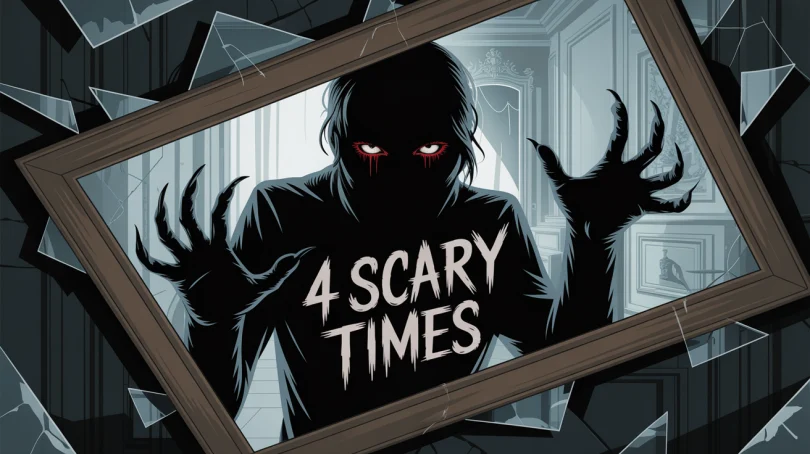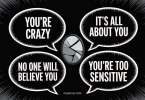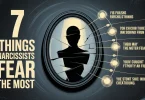Narcissists do hide their real selves, but there are moments when their uglier side, whatever some may term their “demon,” surfaces irrevocably. These are the moments when their actions exhibit callousness, fury, or exploitation that is near supernatural.
In this article, I’ll break down the four key moments when you’re likely to see this demonic side of a narcissist, based on my experiences and insights. Whether you’re dealing with a covert or malignant narcissist, these moments expose their true character in ways that are impossible to ignore.
1. When They’re Angry: The Rage of a Narcissist
The first and most obvious time the demon in a narcissist comes out is when they’re angry, especially after a narcissistic injury, an insult, rejection, or challenge to their ego. When provoked, their eyes seem to turn black, radiating a darkness that feels deeply unsettling. You might feel fear or even question if you’re dealing with someone human.
- Malignant Narcissists: Their rage can be explosive, potentially leading to physical destruction or violence. They might break things or, in extreme cases, become physically aggressive.
- Covert Narcissists: These individuals typically suppress their anger, opting for a cold, silent rage. But if pushed too far, they snap, revealing a side you never thought existed: cruel, calculated, and vicious.
This rage isn’t just a reaction; it’s a deliberate attempt to destroy you emotionally or even physically. They’ll use low blows, targeting your vulnerabilities, like insulting your children or family, to inflict maximum pain. This is a hallmark of their demonic nature, they don’t fight to resolve; they fight to devastate.
2. When They’re Drinking: The Mask Falls Off
Alcohol or drugs can strip away the narcissist’s carefully crafted mask, revealing their true intentions. When intoxicated, they lose the ability to hold back, and the demon within comes out in full force. You might hear them say things they’d normally conceal, cruel truths or vicious insults, they later dismiss with, “I was drunk, I didn’t mean it.” But the truth is, intoxication often reveals what they feel.
This can be a dangerous time, especially with a malignant narcissist. Their lack of self-control can escalate to verbal or physical attacks, making it critical to stay cautious. Their sarcastic remarks or backhanded compliments, often used by covert narcissists to chip away at your self-esteem, become even more biting when they’re under the influence. These moments expose their intent to hurt, manipulate, and control.
Related Topics:
8 Demonic Ways Narcissists Mess with Your Mind
7 Demonic Attitudes Narcissists Carry into Every Relationship
3. When They No Longer Need You: The Cold Discard
The third time the demon reveals itself is during the discard phase, when the narcissist no longer sees you as useful. Whether it’s the end of a relationship or a situation where they’ve gotten what they wanted, their true coldness emerges. They drop the act of care or affection, showing no empathy or remorse.
This is especially evident in scenarios like divorce, where the narcissist you’re separating from is not the person you thought you knew. They may try to sabotage you, manipulate the situation, or make you pay for the perceived narcissistic injury of the breakup. In family court, for example, their rage and vindictiveness can be shocking, as they fight not just to win b²ut to destroy you. They’ll use every tactic, smear campaigns, lies, or even turning your children against you, to inflict pain.
4. When You Criticize Their Toxic Family
The final moment you’ll see the narcissist’s demonic side is when you say anything, however minor, about their toxic family, particularly their mother or father. Narcissists are often fiercely loyal to their dysfunctional family systems, and any perceived slight can trigger an explosive reaction. Mentioning something as simple as, “Why doesn’t your mother ever say hello?” can unleash a rage so intense it feels disproportionate to the comment.
Their eyes may darken, and they might lash out verbally or, in extreme cases, physically. This reaction stems from their fragile egos and deep loyalty to their toxic family, which often mirrors their narcissistic traits. It’s as if you’ve exposed a core wound, and the demon within comes out to defend it at all costs.
Why This Matters: Recognizing the Demon
These moments of anger, intoxication, discard, and family criticism reveal the narcissist’s true nature because they strip away the façade they work so hard to maintain. Their goal isn’t just to disagree or distance themselves; it’s to hurt, manipulate, and destroy.
This level of cruelty, coupled with a lack of empathy, is what makes their behavior feel demonic. They thrive on confusion, gaslighting you into doubting your reality, much like the tactics of evil described in many spiritual contexts.
If you’ve been deeply hurt by a narcissist, it’s likely because you’ve encountered this demonic side. Normal conflicts resolve with mutual respect or separation, but a narcissist’s actions are designed to leave you shattered. Recognizing these moments can help you set boundaries, protect yourself, and avoid falling into their trap of manipulation.
Practical Advice for Dealing with Narcissists
- Set Strong Boundaries: Narcissists hate being told “no” or held accountable, so maintain firm boundaries to protect yourself.
- Avoid Provoking Rage: While you shouldn’t walk on eggshells, be cautious, especially with malignant narcissists, as their rage can be dangerous.
- Don’t Engage in Mediation During Divorce: Narcissists will exploit mediation to manipulate and sabotage. Hire a competent attorney to represent your interests.
- Stay Silent Around Intoxicated Narcissists: Their lack of control can make them unpredictable, so avoid confrontation when they’re under the influence.
- Seek Support: If you’re unsure whether you’re dealing with a narcissist, seek clarity through resources like The Game Exposed podcast or one-on-one coaching.
The demonic side of a narcissist isn’t always visible, but when it emerges, it’s unmistakable. Whether it’s their rage, their coldness during a discard, their behavior when intoxicated, or their reaction to family criticism, these moments reveal a level of cruelty and manipulation that goes beyond normal human conflict. By understanding these triggers, you can better protect yourself from their tactics and reclaim your power.






